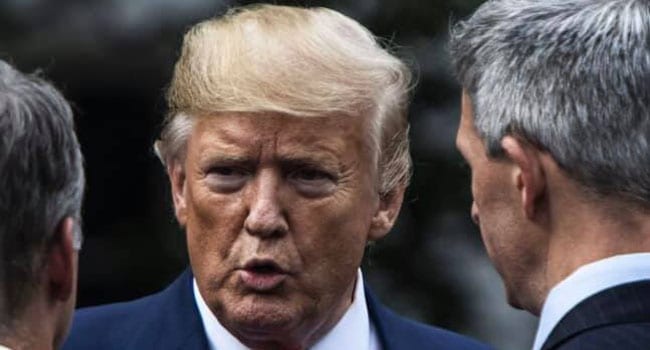 The First Amendment of the U.S. Constitution says, “Congress shall make no law respecting an establishment of religion, or prohibiting the free exercise thereof; or abridging the freedom of speech, or of the press; or the right of the people peaceably to assemble, and to petition the government for a redress of grievances.”
The First Amendment of the U.S. Constitution says, “Congress shall make no law respecting an establishment of religion, or prohibiting the free exercise thereof; or abridging the freedom of speech, or of the press; or the right of the people peaceably to assemble, and to petition the government for a redress of grievances.”
Section 2 of the Canadian Charter of Rights and Freedoms says: “Everyone has the following fundamental freedoms:
- (a) freedom of conscience and religion;
- (b) freedom of thought, belief, opinion and expression, including freedom of the press and other media of communication;
- (c) freedom of peaceful assembly; and
- (d) freedom of association.”
American President Donald Trump recently lashed out at Twitter, claiming the company was interfering with his freedom of speech after it attached a link to an article about a claim he made in a tweet.
Trump responded with this tweet: “Republicans feel that Social Media Platforms totally silence conservatives (sic) voices. We will strongly regulate, or close them down, before we can ever allow this to happen. We saw what they attempted to do, and failed, in 2016. We can’t let a more sophisticated version of that. …”
Twitter’s actions didn’t interfere with Trump’s freedom of speech, as set out by the U.S. Constitution.
Twitter is a private entity, not the U.S. Congress or government. The First Amendment clearly refers to the activities of the government where it might restrict a citizen’s rights.
This isn’t to say there are no restrictions on speech. Hate speech is often restricted, as are a variety of other things, like libelous and slanderous statements.
However, Twitter choosing to fact-check a statement made by a politician is neither slanderous nor hate speech.
Congress moving to restrict Twitter’s activities would quite possibly a violation of the First Amendment.
In fact, Twitter has allowed politicians (including Trump) a much wider range of behaviour than an ordinary user would get. If I tweeted a claim, without evidence, that another individual had committed a murder, Twitter would have suspended or banned my account. I would also likely face criminal charges or a civil lawsuit. Trump has made such accusations on Twitter and has faced no repercussions.
There’s an imbalance in how users are treated on social media. Certain individuals have been getting away with making outlandish and inflammatory statements for years, and have faced no consequences.
Twitter is finally reasserting ownership over its platform.
This is in line with the actions of YouTube and Facebook over the previous two years, banning the likes of Alex Jones.
YouTube has also begun to demonetize smaller, non-corporate, political commentators.
Is this an attack on conservative voices?
Given that many of the commentators that have been demonetized are left-leaning or centrists, it’s clear that social media operators are reasserting their control and ownership over platforms that had become free-for-alls.
Trump’s threat to regulate Twitter if it continues to fact check him may well preface a violation of the American Constitution.
Regulating social media is not only likely to be illegal, it’s pointless.
If conservative voices are concerned about being fact-checked by private corporations, the solution is simple: create a conservative-only rival to Twitter.
Surely one of the rich supporters of the president could afford a few million to launch such an endeavour.
Eamonn Brosnan is a research associate with the Frontier Centre for Public Policy.
Eamonn is a Troy Media Thought Leader. Why aren’t you?
The views, opinions and positions expressed by columnists and contributors are the author’s alone. They do not inherently or expressly reflect the views, opinions and/or positions of our publication.

